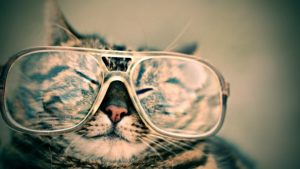 “The Board of 350 Sacramento”… it sounds so intimidating, but really our board is made of fun-loving, good-humored folks who care about the planet (I used to be one myself! Well, I mean, I think I’m still the latter, but I used to be a board member!). These are folks who have volunteered and continue to volunteer their time and efforts toward local climate action. Since we rarely hear from them (because they are very busy behind the scenes), I wanted to highlight what their favorite books or movies were in honor of Earth Day, coming up on Thursday, April 22nd.
“The Board of 350 Sacramento”… it sounds so intimidating, but really our board is made of fun-loving, good-humored folks who care about the planet (I used to be one myself! Well, I mean, I think I’m still the latter, but I used to be a board member!). These are folks who have volunteered and continue to volunteer their time and efforts toward local climate action. Since we rarely hear from them (because they are very busy behind the scenes), I wanted to highlight what their favorite books or movies were in honor of Earth Day, coming up on Thursday, April 22nd.
[And since I mentioned that date, I might as well also mention that that’s when fundraising starts for the Big Day of Giving! Read more about that here.]
Anyway, this post is really about the board’s favorite books and films in relation to the planet, I promise!
Donna
“The Biggest Little Farm – documentary film. It is the true story of a young couple who’s dream is to have a sustainable farm. They move from a large city to an old, neglected fruit orchard. They have to overcome many obstacles. With the help of others, they persevere and create an amazing organic farm.
“I chose The Biggest Little Farm because I was so inspired by the young couple (and others who helped them) who did not give up on their dreams when the obstacles seemed insurmountable. They also learned how to coexist with the wildlife as their organic gardens flourished.”
Tina
“I highly recommend The Uninhabitable Earth: Life After Warming by David Wallace-Wells, an editor at New York magazine. I think this is one of the most important and relevant books to come out in recent years (2019). So is The Sixth Extinction: An Unnatural History by Elizabeth Kolbert (2014).
“The Uninhabitable Earth is a sobering account of the impact of worsening climate change on all aspects of life: heat-related deaths, wildfires, the health of the oceans, the spread of infectious diseases, economics, storytelling, and so forth. The Sixth Extinction is about the Earth’s latest mass extinction event (there have been five in evolutionary history). It is the one we are living through now, and it is entirely caused by humans in the form of habitat loss, invasive species, and climate change. (Currently, one million species around the world are in danger of extinction.) Both books are very well-written and for a general audience. Neither book is feel-good reading, but both tell us in vey plain, direct language exactly what we’re up against.”
Joe
“I really enjoy The Land is the Source of Law by C.F. Black. He is an Indigenous author from Australia, and the book is about his cultures traditional approach to the environment. I find a lot of books focus on the problems or band-aid solutions of the Western world, whereas his looks at what most of history of humanity was and could be. Basically, rather than having land be an afterthought and primarily valued as a commodity, the land was “the source of all law” in the sense that all of their laws were structured around how to sustainably interact with their land. His book was very influential to me and one of the major source materials for an article I published in the Buffalo Environmental Law Journal.”
Mandy
“I love David Attenborough’s new documentary, ‘A Life On Our Planet‘ :)”
Waverly
“The first movie that came to mind was The Lorax. It’s almost scary how relevant it is to today. If you look at how China’s air quality got so bad there are companies that exist that sell canned oxygen to Chinese citizens.”
Ilonka
“I love the movie Avatar, because it shows an alien race to deeply connected to their planet. It parallels the struggles of indigenous people facing colonization and destructive extraction of resources by an alien (human) invader. The cinematography and art is breathtaking.”
Kristi
“One of my many favorite recent books was Braiding Sweetgrass by Robin Wall Kimmerer. Her stories about indigenous sustainable practices brought forth feelings of sadness for how much was lost through colonization, but also of hope that we could perhaps re-learn how to live at one with the earth. She has a story of the salmon coming home in the Pacific Northwest that brought me to tears, and I’ll never think of leeks the same way again!”
Written/gathered by Cat X.


